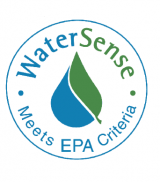 Why conserve water?
Why conserve water?
According to the EPA, while the U.S. population has doubled in the last 50 years, the demand for water has tripled.
Water might seem abundant, but it is actually a finite resource. Overuse of freshwater will cause availability to deplete over time. It is estimated that by 2024, 40 states may have water shortages.
As of June 2021, the U.S. Southwest is experiencing a “mega-drought” with exceptionally dry conditions that are affecting millions of people. Dry to mild drought conditions have also spread across Central to South Florida – which can contribute to wildfires.
What can you do?
1. Reuse Your Water
Oftentimes, we pour excess water or leftover ice down the drain when we are done with it. Instead, put it aside in a container to use for watering plants or cleaning.
2. Install Water-Efficient Household Fixtures
Did you know over half of all home water use takes place in the bathroom? Even without changing your habits, there are ways to make your water use more sustainable:
- Low-flow showerheads can save 2,700 gallons of water a year and have little impact on water pressure.

- You can also purchase low-flow toilets and faucets or install a low-flow aerator to your current faucet.
Products with this label meet EPA criteria for water efficiency and performance.
3. Look Out For Leaks
Even a small drip of water can waste 20 gallons of water per day! Check faucets by drying the area thoroughly and check for moisture after an hour.
Find hidden leaks by reading your water meter before and after a 2-hour period when no water is being used. If the meter doesn’t read the same, you’ve got a leak!
 4. Turn It Off
4. Turn It Off
Remember to turn off the faucet when doing tasks such as washing dishes or produce, soaping up your hands, and brushing your teeth. During a 20-second hand wash, you could waste a quarter of a gallon of water!
5. DO Use Your Dishwasher; DON’T Use Your Garbage Disposal
You may think that hand-washing dishes would conserve water, but in fact the opposite is true. Using the dishwasher can save nearly 5,000 gallons per year.
And in order to run a garbage disposal, lots of running water is needed. Instead, try composting to dispose of food waste.
We hope these tips will help you be more aware of your water usage, and help you take steps toward more sustainable use!
(Information from the U.S. Environmental Protection Agency, Seminole County, Florida Museum and the U.S. Drought Monitor.)